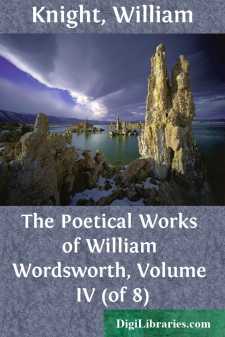Categories
- Antiques & Collectibles 13
- Architecture 36
- Art 48
- Bibles 22
- Biography & Autobiography 813
- Body, Mind & Spirit 142
- Business & Economics 28
- Children's Books 17
- Children's Fiction 14
- Computers 4
- Cooking 94
- Crafts & Hobbies 4
- Drama 346
- Education 46
- Family & Relationships 57
- Fiction 11829
- Games 19
- Gardening 17
- Health & Fitness 34
- History 1377
- House & Home 1
- Humor 147
- Juvenile Fiction 1873
- Juvenile Nonfiction 202
- Language Arts & Disciplines 88
- Law 16
- Literary Collections 686
- Literary Criticism 179
- Mathematics 13
- Medical 41
- Music 40
- Nature 179
- Non-Classifiable 1768
- Performing Arts 7
- Periodicals 1453
- Philosophy 64
- Photography 2
- Poetry 896
- Political Science 203
- Psychology 42
- Reference 154
- Religion 513
- Science 126
- Self-Help 84
- Social Science 81
- Sports & Recreation 34
- Study Aids 3
- Technology & Engineering 59
- Transportation 23
- Travel 463
- True Crime 29
The Poetical Works of William Wordsworth, Volume IV (of 8)
by: William Knight
Description:
Excerpt
One of the "Poems of Sentiment and Reflection."—Ed.
Spade! with which Wilkinson hath tilled his lands,And shaped these pleasant walks by Emont's side,
Thou art a tool of honour in my hands;
I press thee, through the yielding soil, with pride.
Rare master has it been thy lot to know;
Long hast Thou served a man to reason true;
Whose life combines the best of high and low,
The labouringmany and the resting few;
Health, meekness, ardour, quietness secure,
And industry of body and of mind;10
And elegant enjoyments, that are pure
As nature is;—too pure to be refined.
Here often hast Thou heard the Poet sing
In concord with his river murmuring by;
Or in some silent field, while timid spring15
Is yet uncheered by other minstrelsy.
Who shall inherit Thee when death haslaid
Low in the darksome cell thine own dear lord?
That man will have a trophy, humble Spade!
A trophy nobler than a conqueror's sword.
If he be one that feels, with skill to part
False praise from true, or, greater from the less,
Thee will he welcome to his hand and heart,
Thou monument of peaceful happiness!
He will not dread with Thee a toilsome day—
Thee his loved servant, his inspiring mate!
And, when thou art past service, worn away,
No dull oblivious nook shall hide thy fate.
His thrift thy uselessnesswill never scorn;
Anheir-loomin his cottage wilt thou be:—30
High will he hang thee up, well pleased to adorn
His rustic chimney with the last of Thee!
Thomas Wilkinson of Yanwath, the friend of Wordsworth and the subject of these verses, deserves more than a passing note.
He was a manWhom no one could have passed without remark.
One of the old race of Cumbrian "Statesmen"—men who owned, and themselves cultivated, small bits of land (see Wordsworth's letter on The Brothers and Michael, vol. ii. p. 234)—he was Wordsworth's senior by nineteen years, and lived on a patrimonial farm of about forty acres, on the banks of the Emont,—the stream which, flowing out of Ullswater, divides Cumberland from Westmoreland. He was a Friend, and used to travel great distances to attend religious conferences, or engage in philanthropic work,—on one occasion riding on his pony from Yanwath to London, to the yearly meeting of the Friends; and, on another, walking the 300 miles to town, in eight days, for the same purpose. A simple, genuine nature; serene, refined, hospitable, naïve, and humorous withal; a quaint original man, with a true eye for Nature, a keen relish for rural life (especially for gardening) and a happy knack of characterization, whether he undertook descriptions of scenery in the course of his travels, or narrated the incidents which befell him on the way. This is how he writes of his farm, and his work upon it:—"We have at length some traces of spring (6th April 1784); the primrose under the hedge begins to open her modest flower, the buds begin to swell, and the birds to build; yet we have still a wide horizon, the mountain tops resign not their snows....


